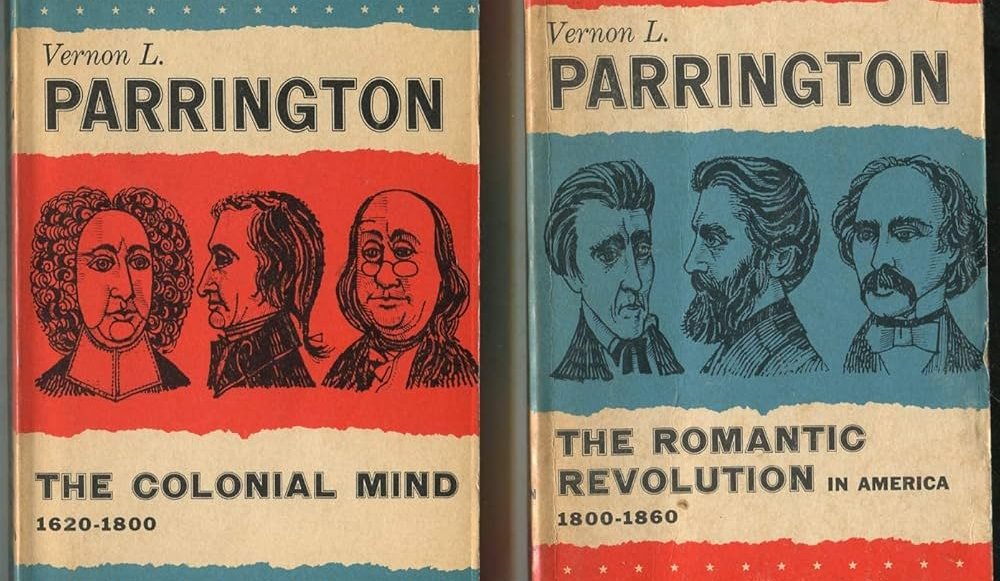Buildings on the University of Washington campus tell stories. One building stands out: Parrington Hall. In 1895 the University moved from downtown Seattle to a wooded area north of town on the shores of Lake Washington. Denny Hall was the first significant structure that arose on the campus, while Science Hall, later called Parrington, was built in 1901.

In 1909 the Alaska-Yukon-Pacific Exposition beckoned the world to Seattle. That great show nestled on 100 acres next-door to the new campus. Vernon L. Parrington, a young professor of rhetoric (the art of prose composition) arrived in Seattle in 1908 as the A-Y-P extravaganza was under construction.
Young Parrington was a son of the Middle Border, a Kansan, a Populist, and a fan of Jeffersonian democracy. He survived chinch-bugs, dust storms, and a Harvard education to teach English at the College of Emporia and at the University of Oklahoma. He also became the winningest football coach at Oklahoma until Bud Wilkinson’s era.
Not long after Parrington’s arrival, a religious clique took over the University of Washington, which would eventually result in the firing of Parrington and five other teachers. Their crimes: smoking, dancing, and holding degrees from liberal “Eastern” colleges.
One of the most popular teachers on campus because of his “Socratic” classroom method, Parrington quietly pursued his research, tended his garden, raised two daughters and a son with his wife Julia, and wrote prodigiously.
The result of Parrington’s scholarly work was the 1928 Pulitzer Prize for History, Main Currents in American Thought. This two-volume study of American intellectual and literary trends introduced lyrically composed portraits of famous Americans as a kind of mainspring to his narrative.
His Populist approach, favoring realist writers and dismissing Henry James, rocked the academic community, becoming, along with a posthumously published third volume, a staple in both American history and literary criticism for over 30 years. It was later discredited by Lionel Trilling, who wrote disparagingly, “Separate Parrington from his informing idea of the economic and social determination of thought and what is left is a simple intelligence, notable for its generosity and enthusiasm but certainly not for its accuracy or originality.”
While writing and vacationing in England’s Cotswold Hills, Parrington suddenly died of a heart attack in 1929. On August 3, 1931, Parrington’s 60th birthday, the old Science Hall on the UW campus was renamed Parrington Hall. Vernon Parrington was the first Pacific Northwesterner to win the Pulitzer Prize. The hall was formerly the home of the English Department.
Discover more from Post Alley
Subscribe to get the latest posts sent to your email.

Interesting, the University of Washington has a great campus